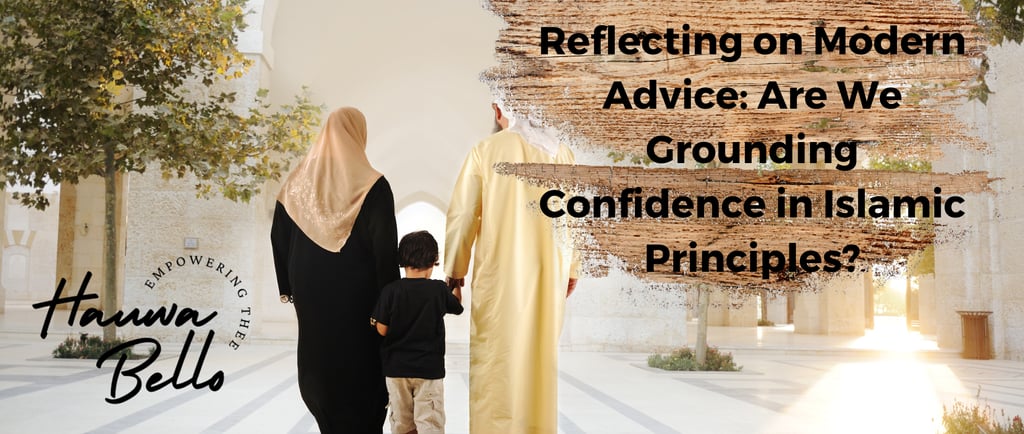Reflecting on Modern Advice
Are we empowering our children with true confidence or paving the way for entitlement disguised as self-expression? In this thought-provoking article, Dr. Hauwa Bello challenges modern parenting and professional advice, urging us to pause and evaluate: Are we grounding our teachings in the timeless wisdom of Islam? Discover how to raise a generation that speaks with wisdom, acts with humility, and lives with purpose—firmly rooted in the principles of faith, respect, and resilience. This is more than a reflection; it’s a call to action for parents, educators, and experts alike. Don’t miss it!
Hauwa Bello
12/3/20244 min read


Grounding "Expert" advice in Islamic Principles.
For some time now, I’ve found myself pondering a recurring theme in modern parenting advice—encouraging children to express themselves freely, to assert their opinions, and to articulate their needs and desires without hesitation. While this advice often comes cloaked in personal anecdotes or expert insights, it fundamentally centers on instilling confidence in children to voice their truths whenever and however they choose.
At first glance, this seems empowering, even noble. But I ask: Are we inadvertently granting power to those who lack the maturity or wisdom to wield it responsibly? Are we endorsing entitlement under the guise of confidence?
Let me explain further, starting with mild examples and progressing to the extreme.
A few days ago, a teenage boy I know had the audacity to confront an elder—someone significantly older than his parents—insisting the elder was wrong and he was right. The issue wasn’t just the teen’s tone or approach; he was, in fact, entirely mistaken. Yet, the boy’s parents supported him, applauding his ability to “assert himself.” On the other end of the spectrum, I recently stumbled upon a video of teenage girls dancing practically naked, justifying their actions with the claim that it was their right to express themselves and the video of the girl naked under the half hijab displaying for all. Adding to this troubling trend, social media is now rife with the mantra, “Listen but don’t judge.”
This leads me to ask once more: Are we fostering a culture that replaces respect, modesty, and balance with unchecked entitlement?
A Question of Tarbiyyah
As Muslims, we affirm that Allah and His Messenger (peace be upon him) have provided a comprehensive framework for tarbiyyah—the nurturing of character and conduct. Yet, how often do we filter modern advice through the lens of our deen? Consider the teachings of our Prophet Muhammad (peace be upon him) on haya (modesty) and adab (etiquette). For example, the Prophet (peace be upon him) once acknowledged a young woman’s silence when asked about her willingness to marry someone as an expression of her modesty. He understood that her natural disposition reflected her acceptance. If she had disagreed, she would have signaled it differently.
Now imagine this situation in today’s context, where shyness is often misconstrued as weakness, and every individual is expected to verbalize their feelings loudly and confidently.
Where does this leave the teenager who publicly accuses an elder of lying or those who openly flaunt themselves under the guise of “self-expression”? Where is the tarbiyyah that balances confidence with modesty, assertiveness with respect, and individuality with communal harmony?
Lessons from the Sunnah
One narration attributed as an athar (narration) offers some insight. Two children noticed an elder making mistakes in his ablution. Instead of directly confronting him and risking embarrassment, they modelled the correct ablution themselves, allowing the elder to observe and learn without feeling disrespected. This story beautifully demonstrates how to correct others with humility and tact. It teaches us that empowerment doesn’t have to come at the cost of adab. Assertiveness can coexist with respect, and self-expression can uphold dignity.
Striking the Balance
Parenting, like many aspects of life, requires balance. Teaching assertiveness should not come at the expense of modesty, respect, and humility. Confidence should be rooted in Islamic principles, where it serves as a tool for justice and truth, not arrogance or entitlement.
“Speak a good word or remain silent.” (Sahih al-Bukhari 6475)
This Hadith encapsulates the spirit of Islamic assertiveness: to speak with purpose and kindness, not recklessness or rudeness. So the challenge here lies in finding the middle ground. How do we instil confidence in children while ensuring they remain respectful, humble, and grounded in Islamic values? Islam calls us to the middle path, avoiding extremes of laxity or rigidity.
We must teach our children that expressing themselves is important but must be done with hikmah (wisdom) and adab. Assertiveness is not a free pass to disregard authority, dismiss elders, or act immodestly. Instead, it is a tool to stand up for justice, voice valid concerns, and advocate for oneself within the framework of tarbiyyah.
A Call to Muslim Experts
This reflection extends beyond parents to Muslim professionals and experts in psychology, education, and child development. To my fellow Muslim professionals, I pose a question: Are we anchoring our advice and methodologies in the principles of the Quran and Sunnah? Whether we are psychologists, educators, or coaches, are we integrating the nuanced balance our deen offers when addressing modern issues? If not, we risk perpetuating a cycle of superficial empowerment, devoid of the depth and wisdom that Islam provides.
It is time for all of us—parents, experts, and community leaders—to pause and reflect. Are we living in extremes, either overly permissive or excessively rigid? Or are we striving to find the middle path, as prescribed in Islam? As a community, we must critically evaluate contemporary advice and adapt it to align with Islamic teachings.
The goal is not to silence our children but to teach them to speak with wisdom, act with humility, and live with purpose. Let us ensure their confidence is not merely an endorsement of entitlement but a tool for good, firmly rooted in the teachings of Allah and His Messenger (peace be upon him). Confidence should be grounded in humility, self-expression should reflect modesty, and empowerment should always uphold respect.
These are questions for us all to reflect upon. May we, as parents, educators, and experts, find the wisdom to empower responsibly and always remain faithful to our deen.
I remain, Hauwa Bello, ever committed to my purpose of empowering myself and others. May Allah guide us to raise a generation that embodies the best of faith, character, and resilience. Amen
I genuinely want to read your reflections too. Feel free to comment on the article below. Thank you
Subscribe to our newsletter
Enjoy exclusive special deals available only to our subscribers.

